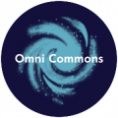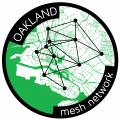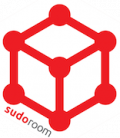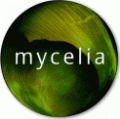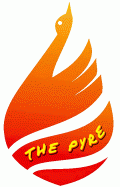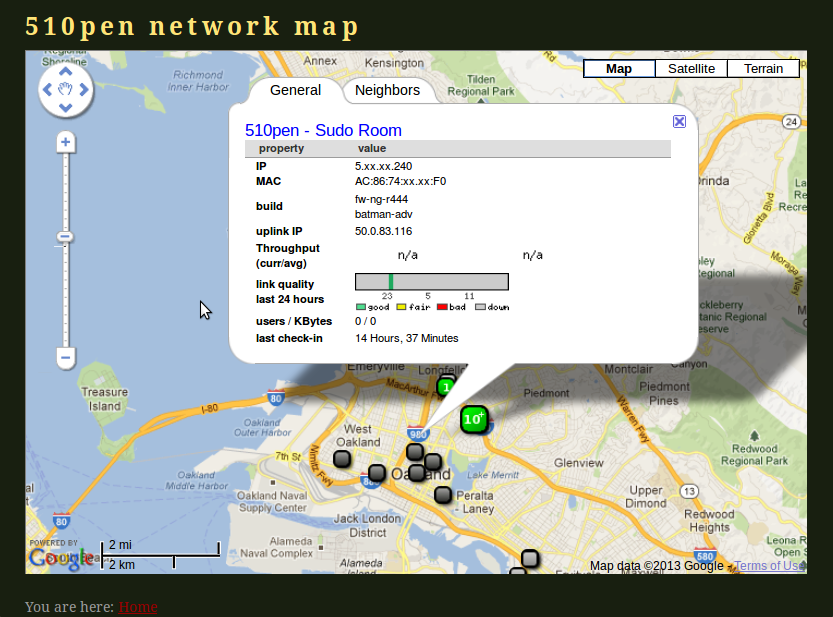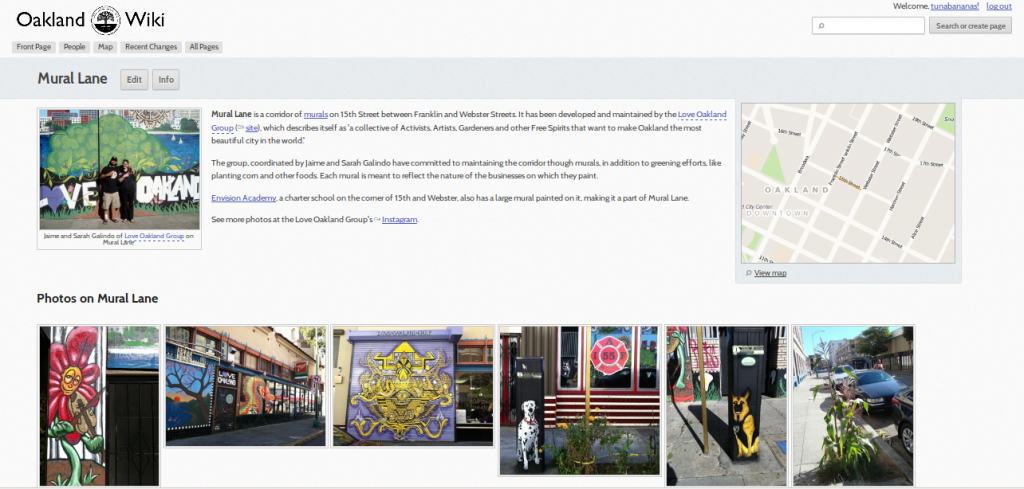As I launch into week 5 of my work with the Open Technology Institute, I’ve begun to collaborate with a variety of groups, organizations and actors who constitute part of the emerging network of activity around developing community mesh networks and mapping applications in Oakland, California. The idea is to facilitate the grassroots (bottom-up) development of community mesh and mapping initiatives already ongoing in the East Bay, while playing a supporting role in documenting progress and connecting communities of interest.
sudo room is a young hackerspace in uptown Oakland dedicated to transparency, social justice and the creative application of technology. Sudo room is an open, inclusive space for free education and access to tools, as well as a venue for hosting local civic hacking, technology and learning initiatives. The groups and projects detailed below meet at and work regularly out of sudo room, which serves as an ongoing hub for events ranging from 72-hour hackathons to meetings between city projects and local hackers.
510pen is an East Bay community mesh network started by Mark Burdett in 2009. Currently, most of the nodes that were set up between 2009 and 2011 are inactive and in need of tech support. As of last week, we’ve begun meeting weekly at sudo room to discuss basic hows and whys of community mesh networks; wireless network hardware and software; how various community wireless efforts can cooperate and collaborate; models for organic growth, organization, support and sustainability; and how we can join forces with local residents, small businesses, non-profits, municipalities and anyone else to build a ubiquitous community mesh network.
Oakland Wiki is a LocalWiki repository for documenting the infrastructure, communities, and history of Oakland. Oakland Wiki hosts weekly edit-a-thons at the Oakland History Museum, where older residents / historians meet with the Oakland Wiki team to document the history of Oakland. Oakland Wiki is also hosting a civic data session at Open Data Day on February 23rd. The goal of this session is to provide a qualitative focus to an otherwise quantitatively-focused event, encouraging the contribution of information about city council, city policies, politics, and key figures in the city – essentially creating narratives around the past, present, and future of the city in an accessible and historically-rich manner.
The Open Oakland Digital Divide Group is a collaborative effort to coordinate the various organizations and individuals working on digital divide issues in Oakland. Spawned out of a session at CityCamp Oakland last December, the group consists of local citizens, technologists, and community change workers interested in creating solutions for effectively addressing the digital divide in Oakland. At our first meeting, held on January 24th, we articulated a few tangible goals to work on: individually reaching out to preexisting groups addressing digital divide issues to assess their needs and available resources; group field trips, visiting for instance a local swap meet where broken computers are donated to a group that turns them into working machines; and creating a central directory of digital divide resources for the city, including for instance a map of local, free tech meetups.
These are just a few of the most prominent players and projects as we move forward in developing relationships with community organizations and neighborhood groups. I will continue to transparently document my ongoing research progress at the Tidepools Wiki, and welcome your comments and contributions in the comments of this post!
